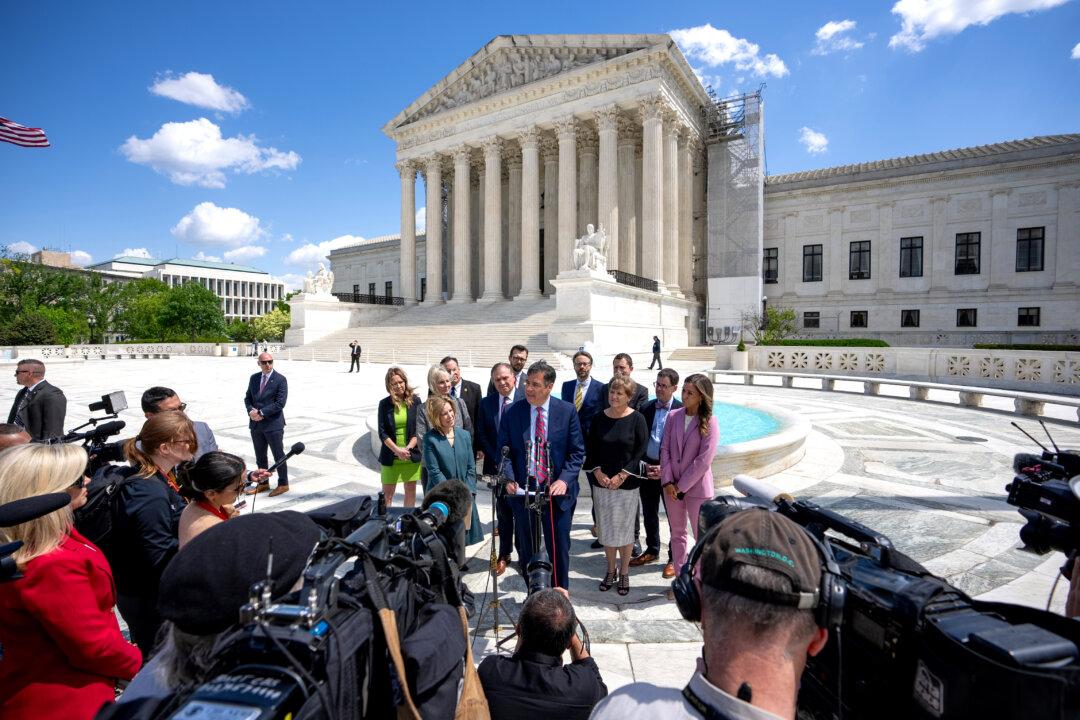Most Supreme Court justices seemed inclined to accept Idaho’s argument on April 24 that the state’s strict abortion law does not conflict with a federal law that prevents hospitals from refusing to treat indigent emergency room patients.
At the same time, liberal justices vigorously questioned whether the Idaho law is putting women in danger.





